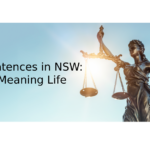Obama Frees Drug Offenders: Is Clemency Ever Justified?

In what has been hailed a remarkable act of mercy, President Obama last week used his power to order the release of 46 inmates who were serving sentences for non-violent drug offences.
The move came as part of Obama’s promise to reform America’s criminal justice system, and in particular the disparities in sentencing offenders for similar crimes across different jurisdictions.
Reasons Behind the Decision
Those released were serving sentences of between 20 years and life imprisonment for drug offences; mostly cocaine trafficking.
According to Obama, they would have already been released if they had been sentenced under current laws.
To qualify for clemency, the inmates must have already served at least 10 years of their
sentence, must not have any known ties to gangs or cartels, must have shown “good conduct” in prison, must have an insignificant criminal history and no history of violence.
Obama sent a letter last week to the lucky few who had been granted clemency.
In a letter to inmate Jerry Allen Bailey, a North Carolina man convicted of conspiracy to violate narcotics laws and sentenced to 360 months imprisonment, Obama wrote:
‘I am granting your application because you have demonstrated the potential to turn your life around. Now it is up to you to make the most of this opportunity.’
The 46 inmates will be released by 10 November 2015.
Speaking in an online video, Obama stated:
‘I believe that at its heart America is a nation of second chances, and I believe these folks deserve their second chance.’
Since taking office in 2009, Obama has granted clemency to a total of 89 inmates – more than any other US President.
On top of this, he has granted pardons to a further 64 people. A pardon differs from clemency in that it demonstrates “forgiveness” of a crime and the abolition of any sentence – whereas clemency simply refers to the lessening of a penalty.
The US Constitution gives the President power to issue clemency and pardons.
The Tip of the Iceberg
The 46 inmates are part of a much larger pool seeking clemency.
It is estimated that more than 30,000 people serving sentences within US prisons have sought a reduction in sentence through volunteer criminal lawyers.
It is argued that a significant number should qualify for clemency; with many criminal defence lawyers saying that the criteria is too strict for complex cases – meaning that many worthy inmates will never see the light of day.
One lawyer who formerly worked for the Office of Pardon Attorney – the body responsible for making recommendations for clemency – says that grants of clemency are effectively limited to ‘perfect’ cases where a ‘good citizen who committed one little mistake got significantly more than 10 years in prison.’
There are also concerns that clemency appeals are being significantly delayed because of under resourcing, with staff from the Office of Pardon Attorney saying that their current workload is too overwhelming to manage.
In response, Obama has promised a 66% budget increase for the Office next year, with twice as many lawyers to process application.
A Long Road Ahead
While Obama’s promises have made the headlines, experts warn that there is still a long road ahead in terms of law reform.
While correcting the mistakes of the past is a positive step forward, many feel that the real changes will only be seen once unjustifiably harsh sentencing laws are overturned.
Douglas A. Berman, a criminal justice professor at Ohio State University, puts the issue in perspective by saying that:
‘even if [Obama] was able to commute 100 drug sentences a week, that is still less than the drug offenders that are sentenced every week.’
Many within the American criminal justice system have felt the impact of harsh laws, such as ‘three-strikes’ rules, which give courts in some US states the power to impose mandatory prison sentences on those convicted of three offences.
While such laws are passed with public safety in mind, they have drawn fierce criticism for injustices caused, with many being sent to prison for minor drug possession offences.
But there is hope yet – since the commutations, Obama has made a series of public addresses promising to cut down on minimum sentencing laws, saying that ‘mass incarceration makes our country worse off and we need to do something about it.’
Obama has also spoken of the way in which these laws disproportionately affect the poor and minority groups, such as Latinos and African-Americans, because the justice system is ‘skewed by race and wealth.’
He has also discussed the appalling conditions inside US prisons, promising to conduct a review of solitary confinement policies.
For inmates who are awaiting news of a clemency appeal, the President’s promises provide hope for a better future.
Perhaps it’s time for an Australian leader to recognise the problems inherent in our own recently-adopted mandatory sentencing and bail laws, and take the initiative to propose reforms that focus on early intervention, diversion and rehabilitation, rather than just increasingly harsh punishments.






